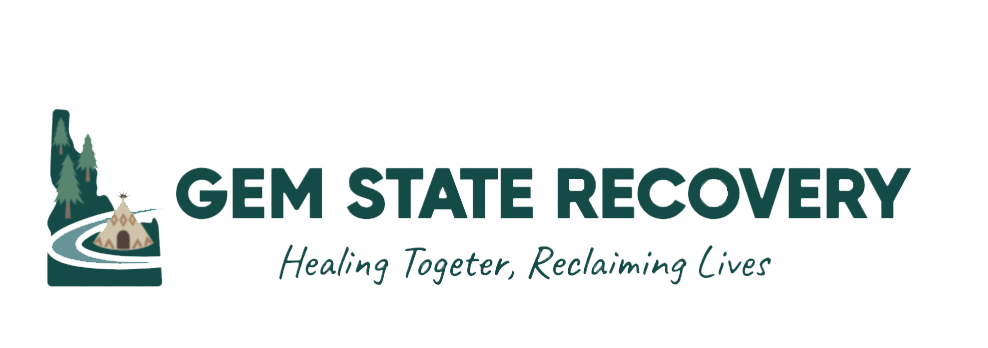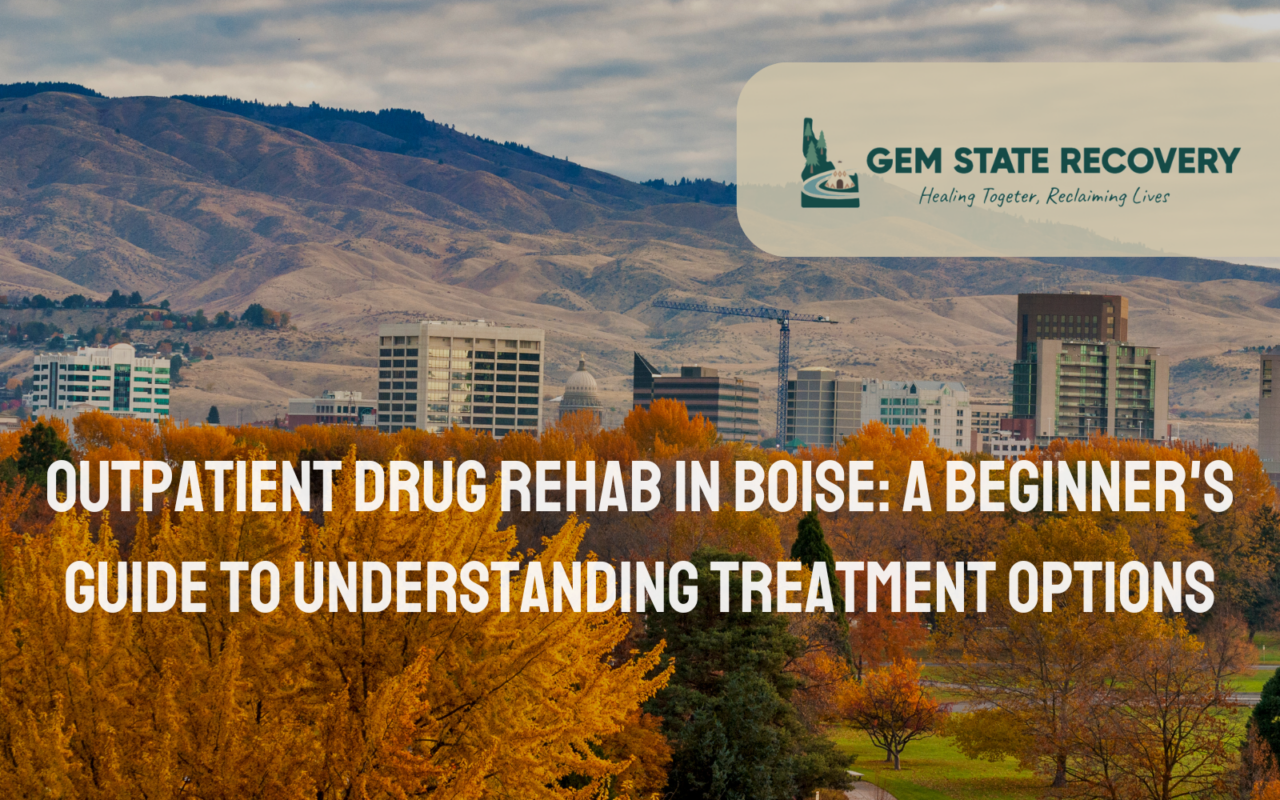Dealing with addiction is a tough journey, but the right support can make all the difference. Outpatient drug rehab offers a flexible, effective path to recovery, especially for those who need to maintain their daily routines. In this guide, we at Gem State Recovery will walk you through the ins and outs of outpatient drug rehab in Boise. From understanding what it entails to choosing the right program, we’ve got you covered.
What is Outpatient Drug Rehab?
Outpatient drug rehab is a type of treatment that allows individuals to live at home while attending rehab sessions at a facility. Unlike inpatient rehab, where you stay at the center full-time, outpatient programs offer flexibility, enabling you to continue working, attending school, or fulfilling other personal responsibilities.
Why Choose Outpatient Rehab?
Opting for outpatient drug rehab in Boise can be particularly beneficial for several reasons:
- Flexibility: You can maintain your daily routine while receiving treatment, allowing you to continue working, attending school, or fulfilling other responsibilities without major disruptions.
- Affordability: Generally, outpatient programs are more cost-effective than inpatient ones, making them a more accessible option for many people who need treatment but are concerned about the high costs of residential programs.
- Support Network: Staying at home allows you to remain close to your family and friends who can support your recovery journey. This constant support can be crucial for emotional well-being and can provide a sense of comfort and stability during challenging times.
Types of Outpatient Programs
Outpatient rehab isn’t one-size-fits-all. Here’s a look at the various types of programs available:
1. Day Programs
Day programs are the most intensive type of outpatient drug rehab in Boise. Patients attend sessions five to seven days a week for several hours each day, often involving a mix of individual therapy, group sessions, and holistic activities. These programs offer a comprehensive structure and are ideal for those who need significant support but have a stable home environment. Patients can benefit from a rigorous schedule that promotes accountability and continuous progress.
2. Intensive Outpatient Programs (IOPs)
IOPs provide a more balanced approach to outpatient treatment. Patients typically attend sessions three to four days a week for a few hours each day. This structure allows for a greater degree of flexibility, enabling individuals to maintain work, school, or family responsibilities while still receiving substantial support. IOPs often include a combination of therapeutic services, educational workshops, and skill-building activities aimed at fostering long-term recovery. Many individuals seek IOPs as part of their outpatient drug rehab in Boise.
3. Continuing Care Programs
These programs, often referred to as aftercare, are less intensive and focus on long-term recovery strategies. They usually involve weekly or bi-weekly meetings and are designed for individuals who have completed more intensive rehab phases. Continuing Care Programs provide ongoing support through group therapy, peer support networks, and periodic check-ins with healthcare providers. The goal is to help individuals maintain their recovery and address any challenges that arise in their journey to sustained wellness, especially those who have gone through outpatient drug rehab in Boise.
What to Expect During Outpatient Rehab
Understanding what happens during outpatient rehab can help you feel more prepared and comfortable. Here’s a glimpse into a typical day:
Assessment and Personalized Plan
Your journey starts with a thorough assessment by a qualified professional who will create a personalized treatment plan. This initial step is crucial for understanding your specific needs and tailoring the program to address them effectively.
Therapy Sessions
Therapy is a cornerstone of outpatient rehab. Sessions can include:
- Individual Therapy: One-on-one sessions with a licensed therapist to address personal issues such as anxiety, depression, and stress, and to develop effective coping strategies tailored to your needs. These sessions provide a private and safe space for self-exploration and personal growth.
- Group Therapy: Sessions with peers who may be facing similar challenges, providing a supportive environment to share experiences, gain different perspectives, and learn from each other. Group therapy fosters a sense of community and mutual support, which can be incredibly empowering.
- Family Therapy: Involves family members in the recovery process, helping to repair broken relationships and build a supportive home environment. This type of therapy aims to improve communication, resolve conflicts, and strengthen the family bond, which is crucial for long-term recovery and emotional well-being.
Education
Learning about addiction, triggers, and coping strategies is vital for long-term recovery. Educational sessions can help you understand the science behind addiction, such as how certain substances affect the brain and body. They also provide practical tools and techniques for managing cravings and avoiding situations that may lead to relapse. This knowledge empowers you to take proactive steps in maintaining your sobriety and improving your overall well-being.
Support Groups
Engaging with peers who are going through similar experiences can provide encouragement and motivation. Support groups offer a sense of community and a platform to share challenges and successes. In these groups, you can gain diverse perspectives and advice from others who truly understand what you’re going through. The shared experiences and mutual support can significantly boost your confidence and resilience, helping you stay committed to your recovery journey.
For those seeking structured support, outpatient drug rehab in Boise offers comprehensive programs that include both educational sessions and support groups to aid in your recovery.
Benefits of Outpatient Rehab
Choosing outpatient drug rehab in Boise with Gem State Recovery offers numerous benefits:
- Community Integration: Outpatient programs facilitate the reintegration of patients into their communities, providing them with opportunities to apply newly acquired skills in real-life situations. This gradual adjustment fosters a smoother transition and helps build a support network.
- Cost-Effectiveness: Outpatient treatment is often more affordable than inpatient care because it eliminates the need for accommodation, meals, and around-the-clock supervision. This makes quality treatment more accessible to a broader range of individuals.
- Family Involvement: Outpatient programs often offer more flexibility for family therapy sessions, making it easier for loved ones to actively participate in the recovery process. This involvement can strengthen support systems and improve the overall effectiveness of the treatment.
Finding the Right Outpatient Program
Selecting the right outpatient drug rehab program is crucial. Here are some tips to help you make the best choice:
1. Research and Reviews
Look for programs with good reviews and success stories. Testimonials can give you insights into the effectiveness and quality of the program.
2. Accreditation
Ensure the facility is accredited and staffed with qualified professionals. Accreditation means the center meets certain standards of care.
3. Customized Treatment Plans
Choose a program that offers personalized treatment plans tailored to your specific needs. Addiction is unique to each individual, and so should be the treatment.
4. Support Services
Check if the facility provides additional support services like job placement assistance, educational resources, and alumni programs.
Why Gem State Recovery?
At Gem State Recovery, we pride ourselves on providing compassionate, comprehensive care. Our outpatient drug rehab programs in Boise are designed to fit your life and needs, offering:
- Personalized Care: We develop customized treatment plans based on thorough assessments, ensuring that each individual’s unique needs and circumstances are taken into account for optimal recovery.
- Expert Staff: Our team consists of experienced, licensed professionals who are dedicated to your recovery, bringing a wealth of knowledge and compassion to support you every step of the way.
- Holistic Approach: We address not just the addiction, but also the underlying issues and overall well-being, including mental, emotional, and physical health, to provide a comprehensive path to recovery.
- Community Focus: Our programs integrate community support, offering group therapy sessions, peer support groups, and community activities to help you stay connected, motivated, and engaged throughout your journey.
Additional Considerations
When considering outpatient drug rehab in Boise, it’s important to also think about these additional factors:
1. Insurance and Payment Options
Understanding your insurance coverage and available payment plans can help alleviate financial stress. Many outpatient programs accept insurance, and some offer sliding scale fees based on income.
2. Location and Accessibility
Choose a facility that is conveniently located to reduce travel time and stress. Accessibility can make it easier to attend sessions consistently.
3. Aftercare and Long-Term Support
Recovery doesn’t end when the program does. Look for programs that offer aftercare and long-term support to help you stay on track. This might include regular check-ins, support group meetings, and access to resources like job training and educational workshops.
Building a Support System
Having a strong support system is crucial for success in outpatient rehab. Here’s how to build and maintain one:
1. Involve Family and Friends
Encourage your loved ones to be part of your recovery process. Their support can provide motivation and accountability, which are crucial for long-term success. Let them know how they can help and keep them updated on your progress.
2. Join Support Groups
Engage with local or online support groups. Sharing your journey with others who understand your struggles can be incredibly beneficial. These groups offer a safe space to express your feelings, gain insights from others, and receive emotional support.
3. Stay Connected with Therapists
Maintain regular contact with your therapists and counselors. They can provide ongoing guidance and help you navigate challenges that may arise during your recovery. Regular sessions can keep you on track and offer professional advice tailored to your needs.

Overcoming Challenges in Outpatient Rehab
While outpatient rehab offers many benefits, it also comes with challenges. Here are some common obstacles and how to overcome them:
1. Balancing Responsibilities
Balancing rehab with work, school, or family duties can be tough. Create a detailed schedule that accommodates your treatment sessions, and include specific times for rest and self-care. Stick to this schedule as much as possible, and don’t hesitate to adjust it if needed to better manage your responsibilities.
2. Dealing with Triggers
Being in your regular environment means you may encounter triggers that can challenge your recovery. Work with your therapist to identify potential triggers and develop effective coping strategies. Additionally, have an action plan in place for when triggers arise, ensuring you know exactly what steps to take to maintain your composure and continue your progress.
3. Maintaining Motivation
Staying motivated throughout the process can be difficult, especially when facing setbacks. Set small, achievable goals and celebrate each milestone, no matter how minor it may seem. Surround yourself with supportive individuals who encourage your efforts and remind you of the progress you’ve made. Consider joining a support group where you can share experiences and gain inspiration from others who are on a similar journey.
The Road Ahead
Recovery is a continuous journey that requires commitment and support. At Gem State Recovery, we’re dedicated to helping you every step of the way. Our outpatient drug rehab programs in Boise are designed to provide the tools, support, and guidance you need to achieve lasting sobriety.
Frequently Asked Questions
Q: How long does outpatient rehab last? A: The duration varies depending on individual needs but typically ranges from a few weeks to several months.
Q: Is outpatient rehab as effective as inpatient rehab? A: Effectiveness depends on the individual’s situation, level of support, and commitment to the program. Outpatient rehab can be just as effective for many people.
Q: Can I work while attending outpatient rehab? A: Yes, one of the main benefits of outpatient rehab is the ability to maintain your daily responsibilities, including work.
Q: What if I need more intensive care? A: If you find that outpatient care is not sufficient, we can help you transition to a more intensive program or supplement with additional support.
Q: How do I handle relapse? A: Relapse can be a part of the recovery process. If it happens, reach out to your support network and treatment providers immediately to get back on track.
Ready to Take the Next Step?
If you or a loved one is struggling with addiction, don’t hesitate to reach out. At Gem State Recovery, we’re here to help you navigate the journey to sobriety with our comprehensive outpatient drug rehab in Boise. Contact us today to learn more about our programs and start your path to recovery. For more information visit our website https://gemstaterecovery.com/ or call us at (208) 314-3107.





